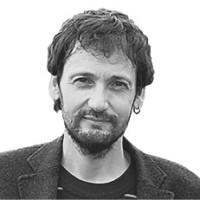“Eichmann is an Israeli pilot bombing Gaza”
- If the Palestinians kidnapped, tried and hanged an Israeli pilot, wouldn’t it be the same?” To answer these and other questions, starting with the book of Eichmann Jerusalem by Hannah Arendt, we have gathered two philosophers and a political scientist around the table to bring up some terms. They have spoken and faded in the surroundings, but they have had two concerns as patterns: How is the banality of evil reproduced today? We have had the participation of Yolanda Barrios, professor of philosophy and member of the Agora philosophy association; Mijo Lizarzaburu, philosopher and transfeminist activist; and Mario Zubiaga, professor and political scientist at the UPV.
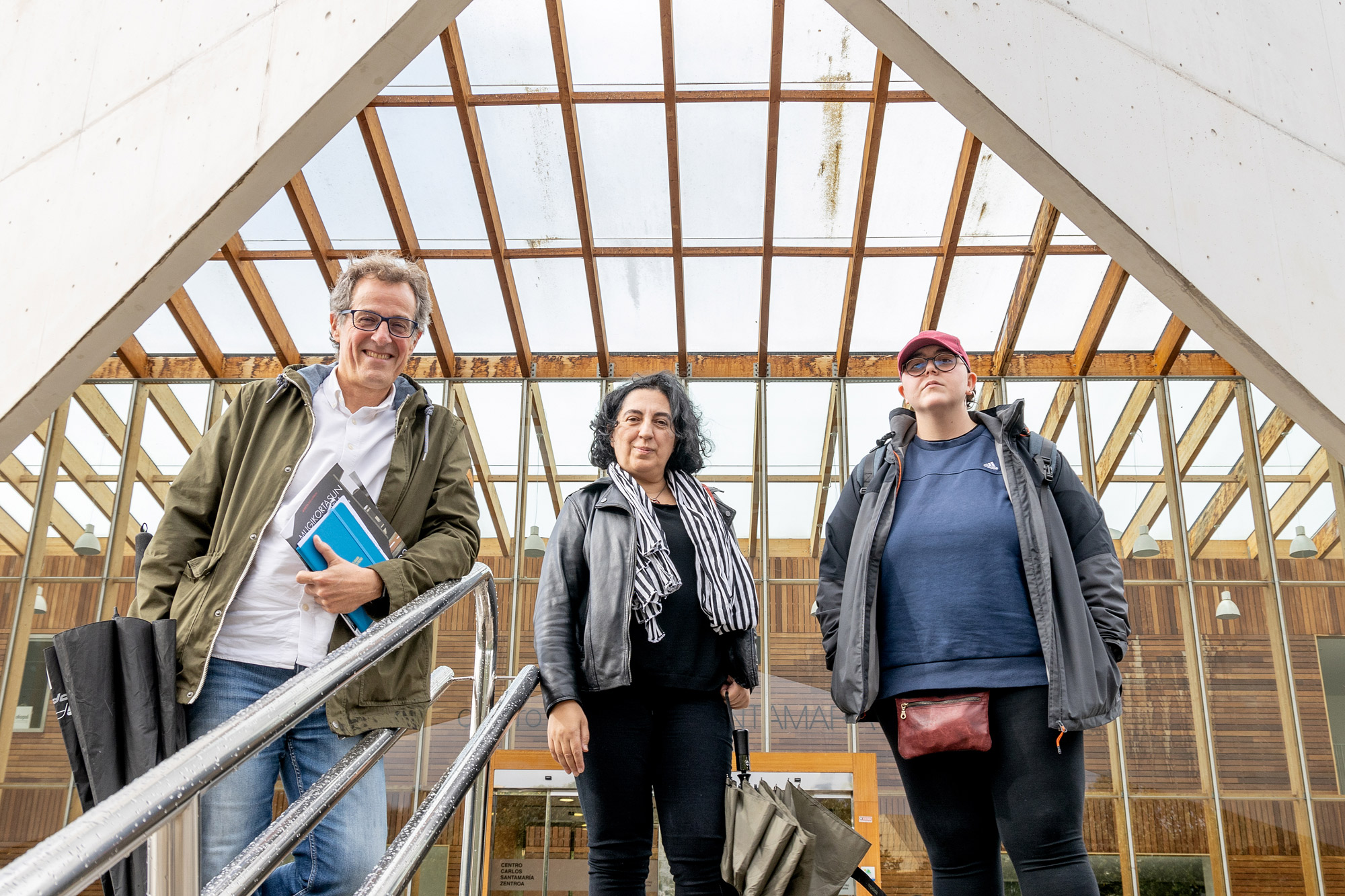
A concept first of all: the insignificance of evil. As a philosophy teacher, Yolanda, how do you explain it to the students?
YOLANDA BARRIOS: First, what is evil. It has always been related to theology. Committing evil meant not fulfilling the divine order. We had to comply with what God said, which was who dictated the law, instruction. Thus, the origin of evil has historically been associated with disobedience.
But when Arendt talked about insignificance, it meant something else. There was no doubt that Eichmann acted badly, and Arendt said that was the case, although he was accused of the opposite. From the philosophical point of view, Eichmann was a new way of doing evil. That is, the novelty was that evil was not based on disobedience, but on obedience, on pure obedience.
Arendt says Eichmann was not stupid. But there's a head.
Eta. NEIGHBOURHOODS: He had no lack of intelligence, he had the necessary skills for life and work, and from a moral point of view, it can be said that he had no special needs. I mean, I knew how to adapt to society. But it can be said that he was a agile mind, because, as Arendt said, he did not reflect. This meant that, although the instrumental reason, which is limited to finding resources to achieve the objectives, was well developed, did not know how to speak to itself, was not able to make judgments of its own. So Arendt called him the boss.
M. LIZARZABURU: It is interesting to observe, being Arendt a neoclassical, how Eichmann justified his performance with the philosophical idea of the obligation of Kant [Immanuel]. The tranpathy justification is that of Eichamn, because after all Kant did not claim blind obedience to obligation, Kant’s obedience is directly linked to the idea that one should decide judicially. Maybe it's a simplification, but I think oftentimes such rationalistic approaches, where thinking doesn't lead you directly to cruelty, are quite insignificant. Socrates’ intellectualism also reminds me of ethics, “who knows good does well”. I do not believe that we are doing this, I do not believe that simple reasoning always leads to good deeds.
MARIO ZUBIAGA: We will locate Arendt in due course. Jew, exiled from Nazism, seeking refuge in one of the almost unique areas of political liberalism and “freedom” in the United States. Hence the question he asked: Why and how has the holocaust been produced? This concern to ask, without fear of the answers, is the contribution of Arendt.
M. LIZARZABURU: We have grown people of my generation into the total cultural production of Yankee propaganda against Nazism, and it seems that Nazism has been the only crime against humanity. So quiet and often asked how the holocaust was possible, and when we are saying this in Gaza, children are dying constantly.
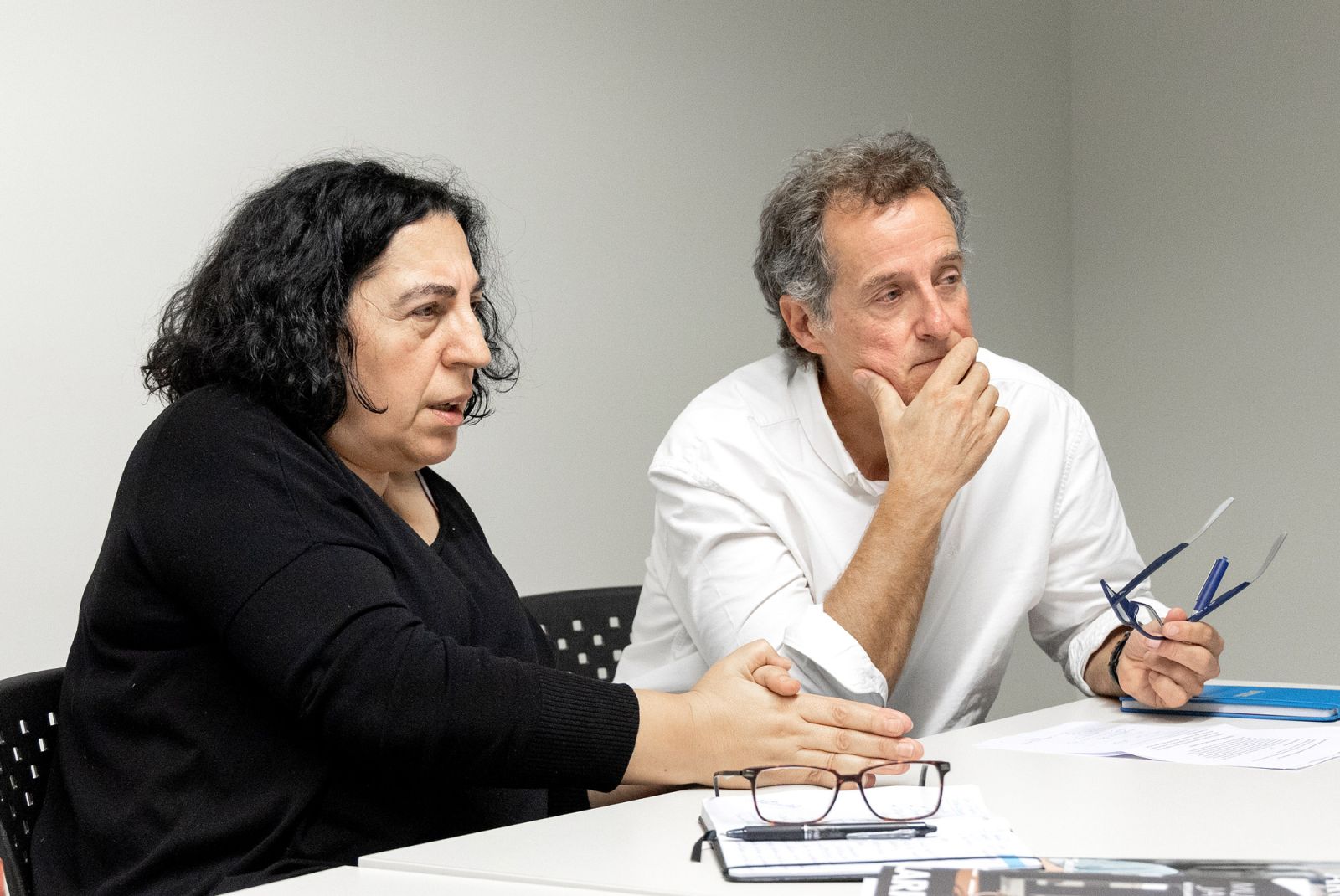
M. ZUBIAGA: Behind is the idea of absolute evil. I believe that in the face of absolute evil we are without weapons. When we see any massacre or barbarism, for example when a man kills his wife and four children, we try to find an explanation. There is often a psychological explanation, “of the head that was wrong”, that gives us peace of mind, is a moral flight. But Arendt tells us that to commit evil you don't have to be evil, that is, that evil is not itself evil. Evil is not only evil. Even the person who is doing evil may think that he is not being evil. Another thing is that it's bad in the eyes of others. Eichmann was a good citizen for the bureaucratic administrative apparatus of Nazism, which was fulfilling what the bureaucracy entrusted to him. So Eichmann is honest with his moral system.
Yolanda Barrios: "From the philosophical point of view, Eichmann is a new way of doing evil, based on disobedience and not obedience"
It was also one more piece in that bureaucratic machinery and was part of a community.
Eta. NEIGHBOURHOODS: It may be interesting to explain, at least a little, what Arendt understands by politics. He does not link power with violence from the classical point of view, but with the power of the community, because the actors continually discuss and act creating a shared world. It puts policy in that direction. In his view, therefore, politics is based on the acceptance of nature different from the other.
M. ZUBIAGA: The definition of politics is “to be together”, in this conceptualization of the polis, in an interaction. This is an associative dimension of politics, as Arendt understands. However, the disassociative dimension of politics, its own, confusing and warlike, is often forgotten.
Eichmann was a obedient man and Arendt, in his book, devotes significant space to obedience and disobedience. Mario, you, in the preamble, have focused on disobedience.
M. ZUBIAGA: Arendt plays interesting in defining disobedience. On the one hand, one must attend to one’s own conscience and not the law, therefore, self-government from the Kantian point of view, that is, to say “what comes from outside is not above my conscience”, and to disobey what may be the order or law of God. At the same time, there is tension with the conceptualization of disobedience. Arendt gives him a collective dimension in which one can distinguish conscientious objection – my conscience does not allow me to comply with this law – and disobedience, which will always be collective.
So the question is: Could Eichmann disobey? Can a bureaucrat claim “conscientious objection” when he receives an order and say that morality does not allow him to do so? In a totalitarian system it is not possible. Civil disobedience can therefore only be viable in democratic systems as a political action. It can be used in totalitarian systems, but struggle will be a sacrificial form, martyrdom.
M. LIZARZABURU: I would like to bring here a quote from the book Arendtena, Responsibility and Judgment: “If they threaten you with a gun and say, “Kill your friend or kill you,” he’s tempting you. And that's it. Even if you are tempted to be at stake, your life may be legally exempt, but it is not a moral justification.”
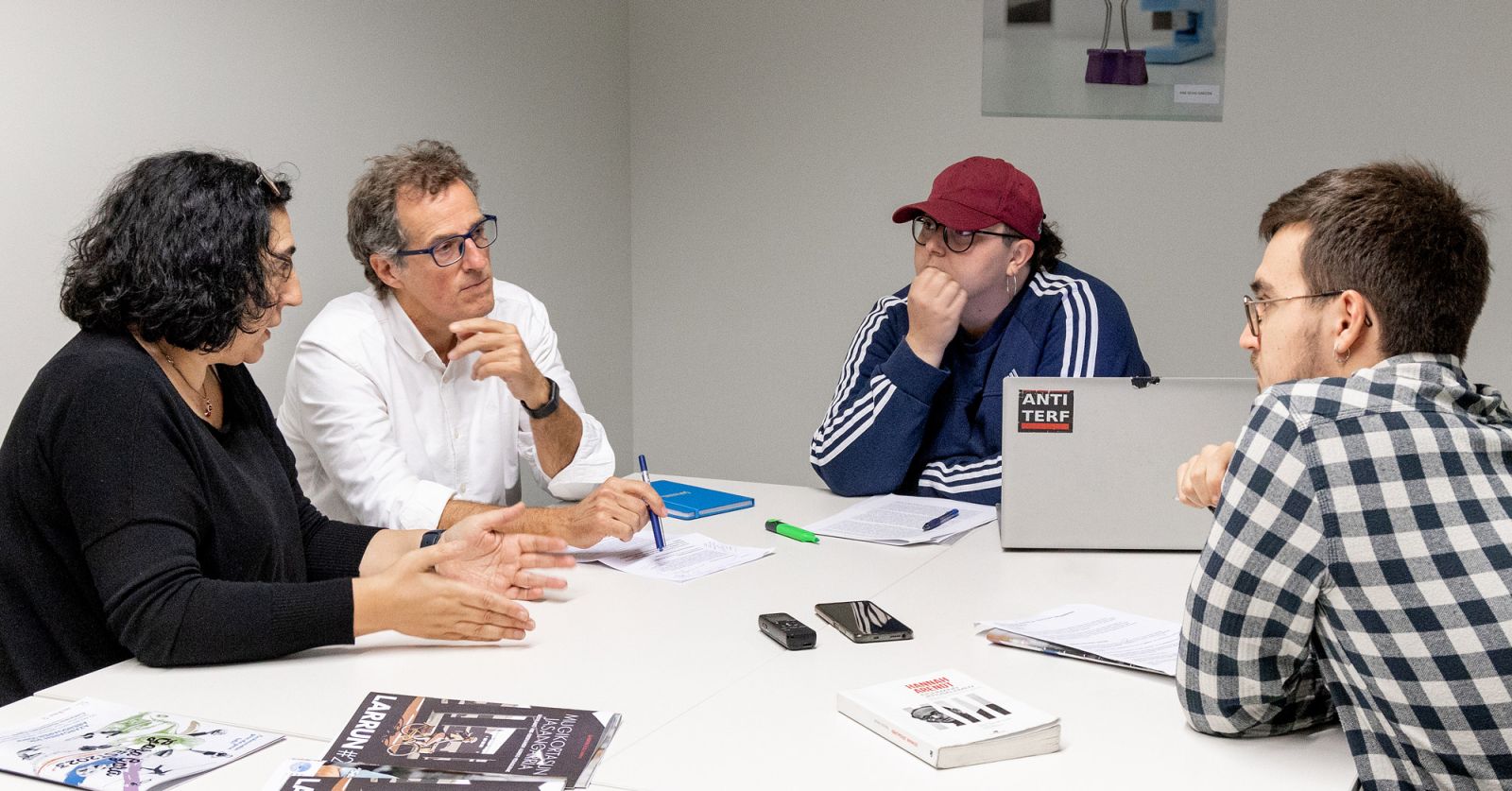
Eta. NEIGHBOURHOODS: Plato’s experience in Sirakusa made it clear, among other things, that politics and ethics are different areas. They have different behaviours and the challenge is to achieve harmony between them, that is, to conduct a correct policy from a moral point of view.
Arendt says in the passage of disobedience that all rights and freedoms come from acts of disobedience.
M. ZUBIAGA: They are manifestations of power, arising from what they were not. We do not yet know what the next rights and freedoms will be, but there will be, they will come. Disobedience keeps this band or wound open. What those fighting for rights and freedoms want is to institutionalise, consolidate what they demand. But, of course, this stabilization supposes that a concrete relationship of power crystallizes.
M. LIZARZABURU: It causes blur. Something like this has happened to feminism. It seems that we are at a point where feminism and its “combative” side have become institutionalized, when it is not in itself, when the goals have not been met at all. I'm not saying that something bad is that institutions take responsibility, because they have more capacity to reach more people. In our radical assemblies, my mother and my grandmother don't come in, and they also need feminism.
As has been said, the demands of the movement have not been met, the reaction against feminism has been activated through the realization of facial bleaches. Antifeminists have become “disobedient.” There is a disobedient tendency of the far-right, against the 2030 agenda, against environmentalism ... And not just from the point of view of negationism. The figures of disobedient individual thinkers who use speeches like “I don’t let myself be fooled” have been accentuated.
Mijo Lizarzaburu: "We have grown in the total cultural production of Yankee propaganda against Nazism"
M. ZUBIAGA: There is also insignificant disobedience, disobedience to order and retrograde disobedience. But, in one way or another, disobedience occurs when deep processes of change are underway: when the conceptualization of justice is in question, when those different concepts of justice are in collision and the law vigente.Por elsewhere, for disobedience to be a revolutionary instrument, for it to make sense, it needs
to be punished. In other words, for disobedience to be fully effective, the system must respond with the sanction. Punishment grants disobedience ethical supremacy, “I am more ethical than the system, more just, more just.” This enables disobedience to take root in society and for the broader society to give reason to disobedient people. The general ethical disturbance opens the way for the revolution of the law at the door of change. It has to be a revolutionary instrument, and Arendt placed on the same axis the absence of violence, disobedience, political action and revolution, the same policy ...
M. LIZARZABURU: I am angry about nonviolence. I believe that most of the rights that have been achieved have been achieved with violence, and that mere disobedience does not generate counter-hegemonic efficiency.
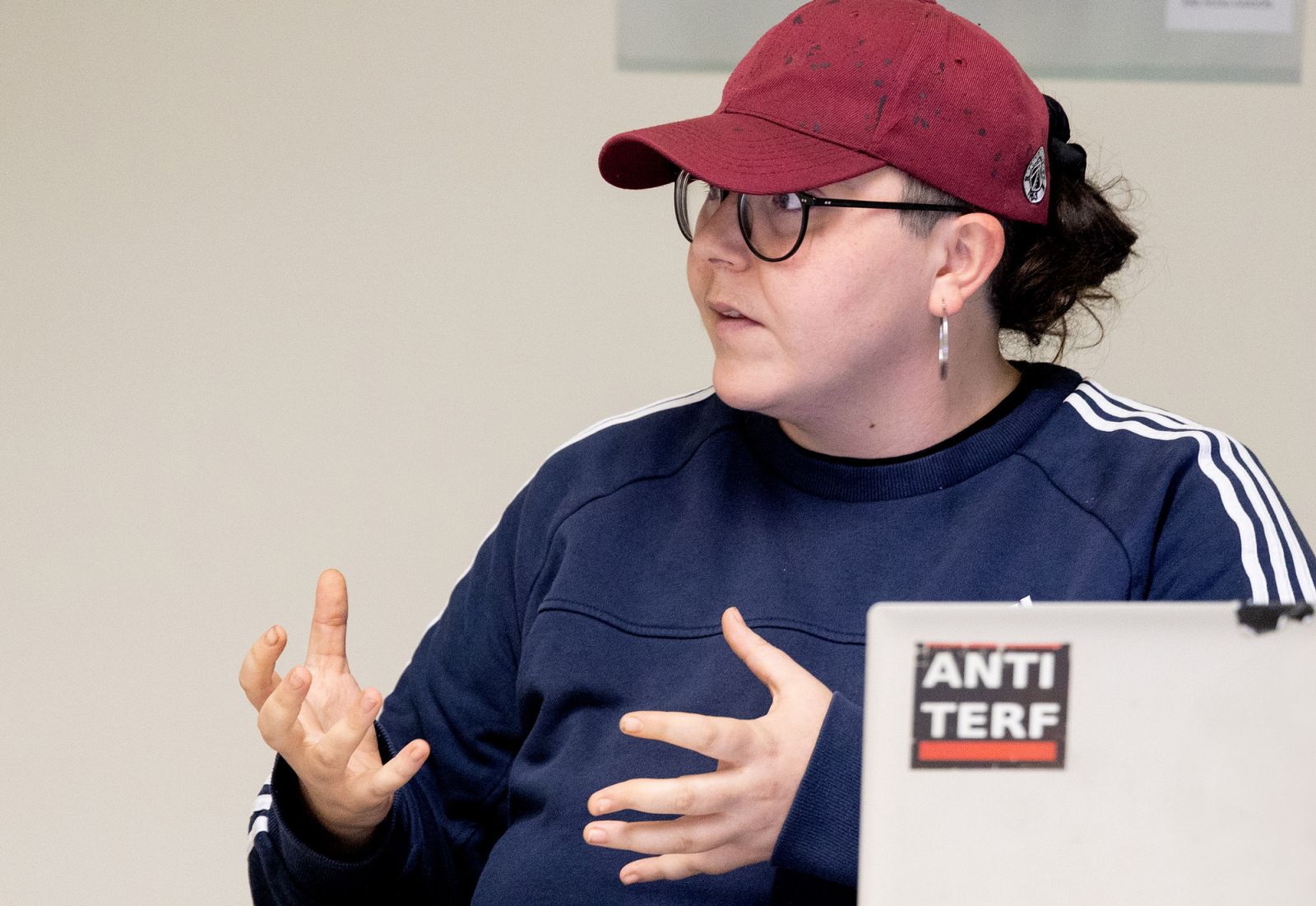
M. ZUBIAGA: On the subject of violence, Arendt says that violence is necessary at a given moment to break the structure of domination, but that violence will not build power. More and more power, less violence is needed.
Closely linked to power and violence, the Police is a figure acting in the name of public order and security. Perhaps the most obvious example in what obeys the order of the State. It's also problematic.
M. LIZARZABURU: Have you been to Tabakalera de Donostia recently? It's odious. You can't have a police cafe without two violent young people being persecuted.
I said earlier that reason itself is not very valuable in the face of structural oppression. Imagine that this individual agent, agent Unai, is morally thinking about whether what he is doing is right or wrong. I think it's not the spotlight, it's low-weight, and I don't think it's useful with an emotion pattern either. Even if I felt empathy, what? It is just a pawn of the racist state.
M. ZUBIAGA: But if Unai thought about what he's doing? Wouldn’t I reflect, from humanity, “I can’t do this”? Would you think it's lawful?
M. LIZARZABURU: I would find justifications: “Yes, those bulls create problems for the neighbors.”
M. ZUBIAGA: The weight of the structure is so enormous that the individual human agent has no place, that is, the agent himself is not able to ask free questions.
A little parentheses. Every year we invite the university class to the head of the ELA public service, responsible for the Ertzaintza. This syndicalist tells us that they are very concerned because the drift is enormous. He defines as a police culture what we have called a structure, and the importance of the group in that police culture is enormous. This structure prevents the individual police from thinking anything if it is not in the logic of their peers.
Eichmann worked in an office, had colleagues, worked in the same logic ...
Eta. NEIGHBOURHOODS: Mention should be made of the importance of employment in modern societies. Because the unemployed have no concrete place in society, because in addition to being economically indispensable for the majority, they place us in the system, in society. Employment gives you a role of belonging, personality, role. If not, you're no one. It's outside the machinery.
M. LIZARZABURU: If they let me live without work, I would seek identity on my own [laughs].
Eta. NEIGHBOURHOODS: Brilliant idea [laughs]. The idea of the force of employment is now blurring. More than in the culture of work, we are in the culture of leisure, and that also generates exclusion.

M. ZUBIAGA: Can we put a police officer, an Israeli pilot who is bombing Eichmann or Gaza at the same level? In a totalitarian context, employment is also in a totalitarian structure. We as a police force, in a democratic system, can come to believe that our mission is to ensure all rights and freedoms and maintain their balance. This is credible without fooling us. Then we have to chase someone at a certain moment, do a concrete action ... We can justify ourselves with simple arguments, because one has arrived in the country illegally and the other does not pay the rent.
In the second case, looking at the pilot who is bombing Gaza, he does know which people will die at the time of the bomb launch. Most civilians, women, children... No pity. And that's Eichmann. Behind it is an almost totalitarian system. The political philosopher Nancy Fraser talks, analyzing the case of Arendt, that the situation of that century was totalitarian, but is now close to the situation we are experiencing being totalitarian. Not only in Gaza, but the neoliberal system itself is making it more totalitarian.
I think of what we are following, listen, you kidnapped, tried and hanged in Eichman, and you are doing Eichmann's. If the Palestinians had the opportunity to kidnap and judge this pilot, what judgment would it be? And who would work on that trial? Having regard to the communicative system, the existing structures, those close to a totalitarian system... We wouldn't have anything like Arendt. Thinking and thinking is becoming an exception.
M. LIZARZABURU: I find it difficult, I have not experienced totalitarianism. These clashes are often made between democracy and totalitarianism, but I do not see it.
Mijo Lizarzaburu: "It seems that the only crime against humanity has been Nazism and Israel continues to bomb Gaza"
A policeman has said in a democracy and I will go to a very specific example. I used to live in Hell, in San Sebastian, in occupied homes. Distension occurred according to the subject. Those of us who were white didn't evict us, if racist, when they knew there were no real alternatives to the shelter. I can understand that some violence and violence occur in totalitarian states and that something else is one-off issues that can be done in democracy. This is not punctual, it's structural.
M. ZUBIAGA: It's not a binary view, or totalitarianism or democracy. From a more dynamic perspective, we are continuously democratizing or desdemocratizing. This fluctuation has accelerated and intensified the processes of de-democratization. And specifically, in what we've talked about the police, the Mordaza Act. From the police point of view, the impunity that protects this law is enormous. There are tendencies towards totalitarianism, but this does not mean that we live in a totalitarian situation.
Fascism, Nazism ... There is or has always been a leader at the tip. Does society need the leader?
M. LIZARZABURU: I do not think a leader is necessary, but a structured power. This power is often personified within a leader and concrete things are done for the general population to empathize with him. It is clear what they have done with Leonor of Spain, a simple, sympathetic woman listening to music and concrete artists. It is much more difficult to empathise with the European Union or the International Monetary Fund.
M. ZUBIAGA: The confortability of obedience is closely related to this structuring of powers. We are comfortable when we obey. In most cases, most decisions or orders obey, gives us peace of mind. It's not just law, practices, activities, gestures... As part of the structure you don't have to think about what to do, others decide for you. Disobedience is very uncomfortable. So following the leader is very comfortable. She's a happy sheep in her flock.
Eta. NEIGHBOURHOODS: Yes, with authoritarian leaders we should not think anything, the leader will tell you what is unfair and what is not, who is responsible for our regrettable situation, what is the solution... When Arendt analyzed the components of totalitarianism, ideology stood out. Ideology explains the situation, justifies government behavior and signals us to enemies.
M. ZUBIAGA: Arendt raises a question: Are people like Eichmann possible only in totalitarian systems or can they be in other systems, theoretically freer? We've seen Gaza, and yes, I think they're possible in any system.
Eta. NEIGHBOURHOODS: Numerous attempts have been made to understand and explain behaviors such as Eichmann. One of them is psychologist Stanley Milgram, perhaps the best known, and Stangford University, Philip Zimbardo. In the latter, Professor Zimbardo created a fictional prison. Half of the students were “detained” and the other half were “police”. He had to stop the experiment because the attitudes and psychological changes that occurred were surprising, especially by the “police”. They had behaviors without moral limits, acted with absolute impunity, in the diabetic logic. After a few years he reunited with the students, and those who were the cops did not want to talk about it. It's normal, you don't want to find yourself in that. It is easier to access your criteria when the situation is against.
However, I find it too easy to talk about police. Perhaps we also have to think about ourselves, to see what the behaviors are coming up. In short, we live in a bureaucratic system in which we often function as herds.
Mario Zubiaga: "For disobedience to make sense as a revolutionary instrument, it needs to be punished."
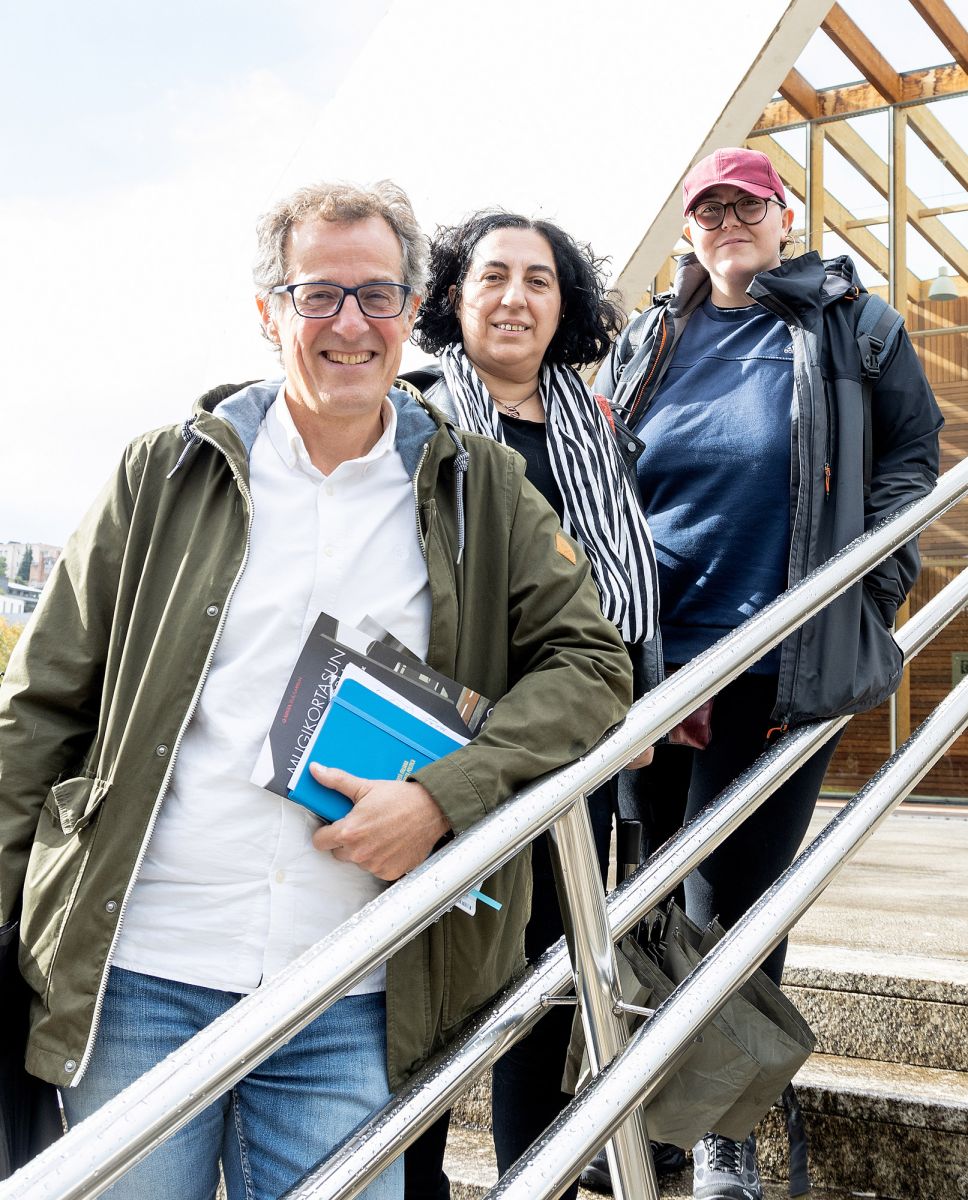
You have obligations, but also some freedom.
Eta. NEIGHBOURHOODS: That's right, but many times we don't really act, we hide in roles and protocols. Taking into account the case of the above officers: the main role of the police is supposed to be security, but the problem lies in the definition of security, and this definition is a political issue. On the other hand, understanding the behavior of police officers as individual behaviors is problematic; the protocols are taught in academies, but their attitudes are not individual.
M. ZUBIAGA: A distinction must be made between police and police functions. In a society, in the polis, diversity reigns, we have very different people and we have to manage the freedoms and rights of all. There are rights that are contradictory, and those opposing rights should be managed safely, that is the basis for me. From this need arises the police function. Can that disappear from our societies? Waiting for an absolutely just and harmonious society that will never arrive, what is the legitimate objective, the way to manage diverse people?
When we hear the “police”, however, we think of a structure at the service of a political-economic system, and the current power structure sees more crimes in the demonstrating workers, or in the bilbaíno neighborhood of San Francisco, than in the Iberdrola tower, where there are probably more criminals. That is a debate, but that does not deny that we need a police function. They're two different planes. We should understand this police function as part of mutual care and radically change the current police structure and actions.
M. LIZARZABURU: People who by class or race are called “problematic” throw themselves into the periphery, and now in San Sebastian, the neighborhood of Egia is gentrifying, Sos's racism has gotten there, and you see how it annoys white people. The fact of being drugging Moors in a neighbourhood without tourists does not bother you so much that our beloved museum is next to Tabakalera.
Pasa den urtarrilean, Yuk Hui filosofoak hitzaldi bat eskaini zuen –solasaldi bat, hobeto esanda– Donostiako Tabakaleran. Azken urteotan oihartzun handia izan du haren lanak, eta goraino bete zen aretoa. Besteak beste, monoteknologismoaren pentsamendu-ildoa kritikatu... [+]
El tema corporal ha cobrat pes en els discursos actuals, ens apareix de moltes maneres. No obstant això, es tracta de debats relativament recents en els quals el cos ha estat bastant marginat en la història del pensament occidental en comparació amb uns altres temps.
A mi la... [+]













